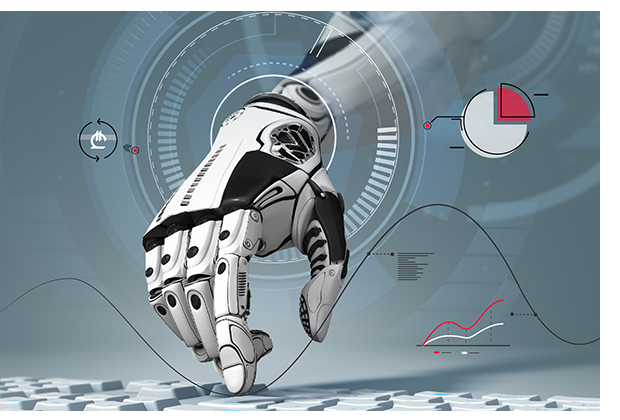
Anzor Mekhrishvili

Technologies
Modern technologies are unlocking new possibilities and growth paths for businesses, transforming both daily operations and customer interactions. Cloud and mobile technologies, Robotic Process Automation (RPA), the Internet of Things (IoT), and Artificial Intelligence (AI) with machine learning are some of the key players driving significant changes in today's business landscape. These advancements are becoming the fastest route for companies to gain a competitive edge.
Data Transformation
In today's market, data is one of the most critical assets. Along with the growth of the business, both the amount and the sources of data accumulated in the company increase. For data processing and unified visualization of all these sources, there are Business Intelligence systems that will allow you to: process large amounts of data from different sources, create and manage various reports, and gain insights on a personalized dashboard for real-time business management.
All this is necessary to become a data-driven business, to constantly have a 360-degree view of the events going on in the company.


Cybersecurity and information security
One of the main challenges facing businesses is cyber and information security. Any vulnerable system can be exposed to threats that can result in significant financial and reputational damage.
While completely avoiding cyber incidents can be difficult, there are recommendations and standards that, when implemented, can improve a company's cyber environment, and minimize the likelihood of such incidents. Improving a company's cybersecurity posture involves implementing technical and administrative control mechanisms, as well as access controls, employee awareness training, and robust risk management practices.
In today's market, doing business without process transformation and automation is practically impossible. Modern automation solutions, such as Enterprise Resource Planning (ERP) systems, mini-ERP systems, and Microsoft-based systems (MS systems), significantly improve process efficiency, giving companies a competitive edge.
As a result of the digital transformation of processes, all business processes must be automated, and processes must be continuously improved through Process Mining and RPA.


The rapid pace and wide-ranging impact of global digitalization are forcing companies to transform their sales channels. having Digital channels in addition to physical locations (stores, malls, etc.) are no longer just a way to generate additional revenue, but are becoming essential for driving core sales.
The trend of digitalization in sales channels shows it's not slowing down in the world market and will not slow down in the foreseeable future. As a result, companies should prioritize this area for continued success.

Anzor Mekhrishvili